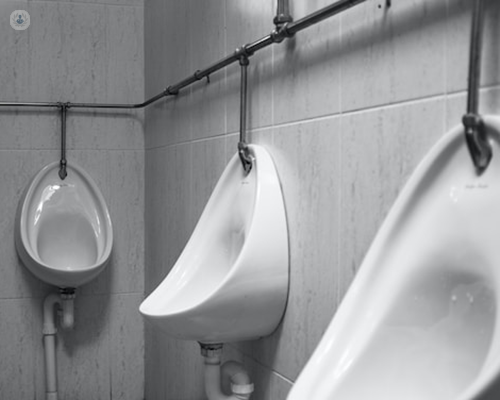Expert insights on HoLEP: Effective prostate treatment for lasting results
Written by:In this informative article, we hear from esteemed consultant urological surgeon Mr Nkwam Michael Nkwam on holmium laser enucleation of the prostate, or HoLEP, a cutting-edge, minimally invasive surgical technique for the treatment of prostate problems. The revered specialist details how advanced laser technology is used to effectively treat bothersome urinary symptoms, particularly for larger prostates. Mr Nkwam also discusses safety, recovery, and the long-term success rates which afford lasting relief and improved quality of life for men suffering from prostate symptoms.

What is HoLEP?
HoLEP stands for holmium laser enucleation of the prostate. It is a minimally invasive, specialist surgical technique whereby a fine laser fibre is used to peel the prostate away from its outer shell or capsule.
Why would someone require HoLEP?
The HoLEP procedure is, one of if not, the most effective form of bladder outlet surgery there is and lends itself very well to prostates of all sizes.
Men who have bothersome urinary symptoms such as poor flow, dribbling and hesitancy, and of course men who are unable to pass urine at all without the aid of a catheter, have a condition called benign prostatic hypertrophy (BPH). These men would benefit from the HoLEP procedure.
This highly effective laser operation comes into its own for really big prostates (i.e. greater than 80cc in volume). This is because due to the large size of such prostates, standard techniques such as TURP may struggle to remove enough prostate tissue to improve a man’s symptoms sufficiently. Furthermore, if symptom improvement is achieved, they invariably return after some time.
Is HoLEP considered major surgery?
No, HoLEP is a minimally invasive procedure for the treatment of men with BPH. It is considered to be a very safe procedure which can be performed under a general anaesthetic (patient asleep) or a spinal anaesthetic (patient awake but numb from the waist down) and can take anywhere from 45 minutes to three hours to complete depending on the size of the prostate. However, almost all patients are home the day after surgery, catheter-free!
What are the advantages and disadvantages of HoLEP?
The advantages of HoLEP include the ability to deal with prostates of any size. It offers the greatest improvement in symptom relief and urinary flow rate.
Amazingly, only about one per cent of men require a second surgical procedure to improve their symptoms at 10 years, whereas this figure can be as high as fifty per cent with other techniques.
Side effects are much like other surgical prostate procedures and include the following:
Common
- temporary mild burning sensation on passing urine
- bloodstained urine
- retrograde ejaculation
Uncommon
- temporary short term loss of urinary control - which can be improved with pelvic floor exercises
Rare
- bleeding requiring blood transfusion or reoperation
How long do the results of HoLEP last? Can the prostate grow back?
Due to the completeness of the enucleation technique, minimal prostate tissue is left behind as it is all peeled off from the prostate capsule. This means there is very little chance for the prostate to grow back and cause recurrence of urinary symptoms. Hence, the results of the HoLEP surgery last up to 10 years in 99 per cent of men.
If you are considering undergoing HoLEP treatment or are experiencing troublesome urinary symptoms, you can schedule a consultation with Mr Nkwam by visiting his Top Doctors profile.


